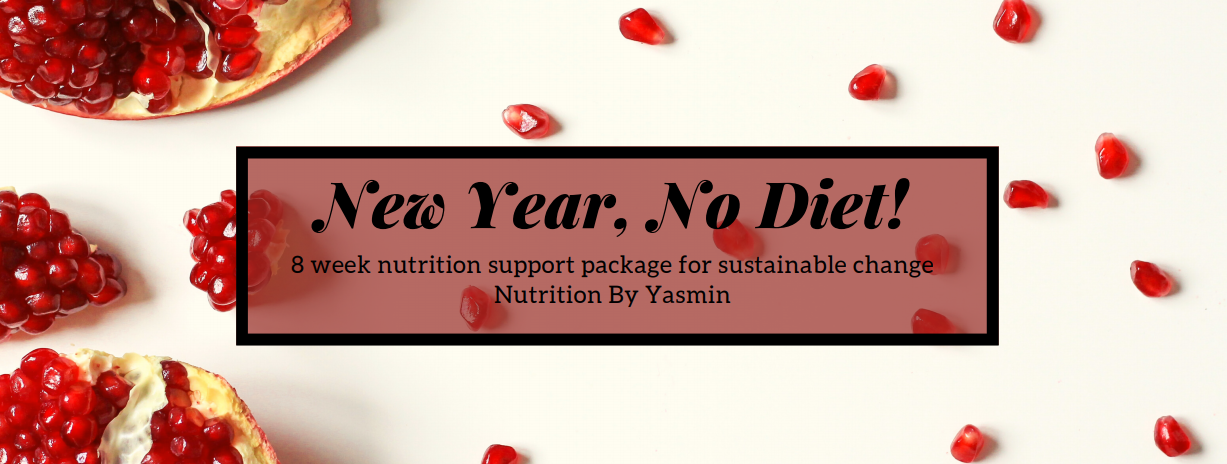Why do I struggle to lose weight?
“Why do I struggle to lose weight?”. This is something I hear on a weekly basis in my nutrition clinic, especially at this time of year, when losing weight is at the forefront of many of our minds. Let’s just get something straight, weight loss is not as easy as it’s portrayed to be, but in fact quite complex. Here I will outline some of the reasons you may be struggling to lose weight despite your greatest efforts.
- Your mindset
I very commonly see people adopting an all or nothing mindset when it comes to their diets. This is often linked to dietary changes being made for a short time period, such as before a holiday or event. All or nothing thinking can lead to restrictive diets which are unsustainable. By changing your mindset and the whole way you view food, your weight loss success and maintained weight success may look very different.
- You are not eating enough
We require energy and calories from food to ensure our bodies can function optimally and efficiently. Methods to lose weight sometimes include very low-calorie diets which consist of under 1000 calories. Whilst you may initially lose weight due to the lower energy intake, in the long run your body can become sluggish, inefficient and this may actually be hindering your best efforts.
- Too calorie focused
Calories are units that energy in food can be measured in. The concept of calories in vs. calories out is very simplistic, and weight loss is often so much more than this. If we believe the only way to lose weight is to restrict and monitor our calorie intake, we can easily find ourselves disregarding very healthy foods which come with a higher calorie content (avocados for example). You may actually be consuming a very carbohydrate having diet which is lower in calories, this in itself may be hindering your ability to lose weight.
- Snacking
Endless snacking may be a daily occurrence for you and I see this a lot with clients who are trying to lose weight. This may be a result of your meals not being filling or sustaining enough, and can result in hunger and cravings; leaving you reaching for the snacks.
- Stress
Stress can impact our bodies in several ways. Feeling stressed or under pressure may lead us to have food cravings or feel hungrier. But stress can also affect our hormone levels and affects how our body utilises and stores fat. When we are very stressed (mentally, physically and emotionally), our body releases more cortisol (our stress hormone), which could lead to increased fat storage, especially around the middle.
- Sleep
Sleep is something that falls on the back burner, especially around the festive season. We must value and prioritise sleep as much as we can as it can be important for our bodies, especially when trying to lose weight. Being sleep deprived may affect the types of food you go for, typically those higher in sugar and fat, which will provide energy quickly.
- Functional imbalances
Our bodies are complex machines, and a bit like an orchestra, all systems need to be playing in harmony for everything to run as smoothly as possible. When it comes to weight management, glands such as our thyroid are key players. If your thyroid gland, which plays a role with metabolism, is imbalanced then this will impact your ability to lose weight. Similarly, certain nutritional deficiencies can have an impact, such as vitamin D.
What’s important to remember here is that we are all so biochemically unique and have different requirements within our daily lives and diets. What works for your friend won’t always work for you.
If you are looking to change your mindset, enjoy real food again and feel the best as you go into 2020, I have a new package for you – my New Year, No Diet! package. This will help us figure out what may be holding YOU back from achieving your goals. We will work together for 8 weeks (including 5 consultations) in my new New Year, No Diet package. For more information click here or get in contact for a chat.

